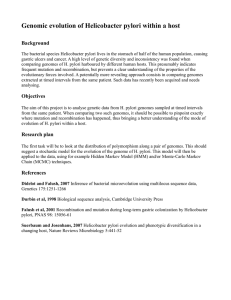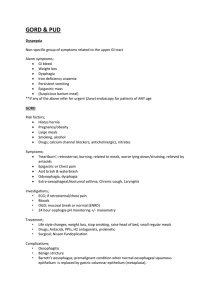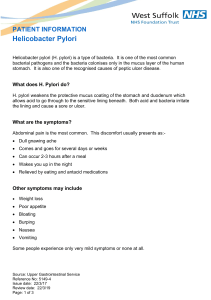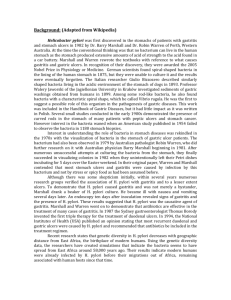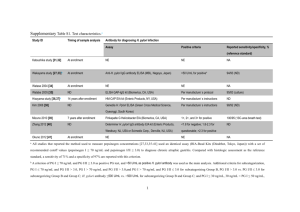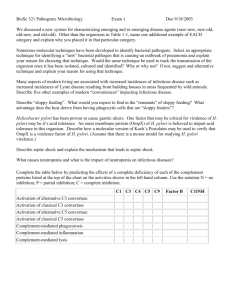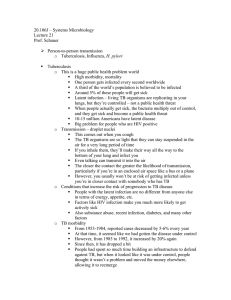Bact behind ulcersSci Am 1996 Questions
advertisement
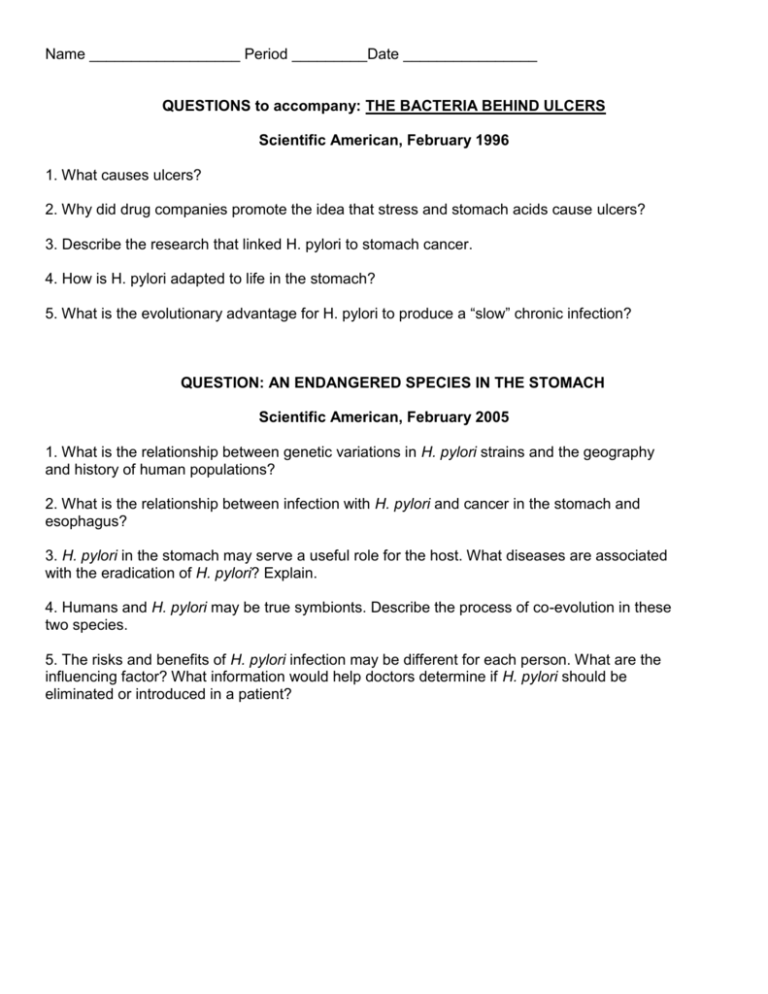
Name __________________ Period _________Date ________________ QUESTIONS to accompany: THE BACTERIA BEHIND ULCERS Scientific American, February 1996 1. What causes ulcers? 2. Why did drug companies promote the idea that stress and stomach acids cause ulcers? 3. Describe the research that linked H. pylori to stomach cancer. 4. How is H. pylori adapted to life in the stomach? 5. What is the evolutionary advantage for H. pylori to produce a “slow” chronic infection? QUESTION: AN ENDANGERED SPECIES IN THE STOMACH Scientific American, February 2005 1. What is the relationship between genetic variations in H. pylori strains and the geography and history of human populations? 2. What is the relationship between infection with H. pylori and cancer in the stomach and esophagus? 3. H. pylori in the stomach may serve a useful role for the host. What diseases are associated with the eradication of H. pylori? Explain. 4. Humans and H. pylori may be true symbionts. Describe the process of co-evolution in these two species. 5. The risks and benefits of H. pylori infection may be different for each person. What are the influencing factor? What information would help doctors determine if H. pylori should be eliminated or introduced in a patient?


